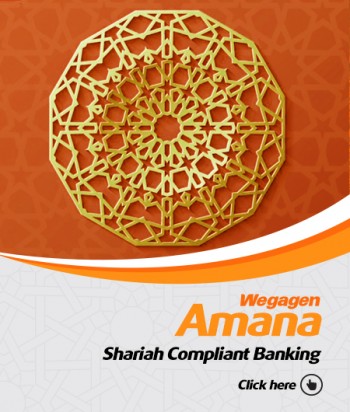Safeguard Your Account
Nobody knows your account better than you. That’s why you should never share your card details, internet banking log in and token with anyone over the phone, SMS or email.
WegagenBank is continuously developing and implementing security enhancements to ensure the integrity of our Online Banking platform.
Our goal is to protect your online safety, the confidentiality of our customer account and personal data.Learn more about protecting yourself online, how to spot fraudulent e-mails and Web sites.
Security Tips
- Giving away your Internet Banking login, card details, PIN and codes from your token device, gives anyone total access to your account. Wegagen Bank will never ask for any of these details via any form of communication.
- Keep your ATM cards safe and do not share your personal identity number (PIN) with anyone. Do not keep any written copy of your PIN with your card. Memorize it.
- Seeing a phone number or email address you recognize does not mean it is genuine. Always give cold-callers a cold reception
- Use your hand or body to shield your PIN when you are conducting transactions at the Automated Teller Machine (ATM) or when making Point of Sale (POS) transactions at retail stores.
- Create strong passwords for your Internet Banking login and card details. Change them often.
- Check your bank account statements and card transactions regularly to make sure these only reflect transactions you have made. If you see a transaction you cannot explain, report it to the bank.
- Subscribe to SMS alerts to be delivered to your cell phone or email, so you can stay updated on your account activity.
- Always log on to our internet banking service via our website – www.wegagen.com
Recognizing Fraud
You are the first and best layer of defense in combating online fraud. Learning to properly detect and avoid online scams is the ultimate protection against fraud. Read the tips below to help you spot potential scams.
Online fraud typically takes the form of fraudulent e-mails and Web sites. These forged means of communication often use corporate logos, colors and legal disclaimers to make them appear authentic.
Fraudulent Emails
Fraudulent e-mails are the most common avenue of online scams. A “spoofed” e-mail is one that purports to be from a reputable source in an attempt to trick you into divulging personal or account information, sending payment, or otherwise taking an action that will result in fraud. These attacks are common because they are low-tech and can be easily deployed on a massive scale. Even though the warning signs are there, “phishing” and scam e-mails continue to fool people. Some of these mails also request that customers update their account records by clicking on links to fake Internet banking and Interswitch websites.
Spoofed Websites
Spoofed Web sites, like phishing e-mails, are used by fraudsters who build fake websites that look very similar to Wegagen Bank’s website to lure unsuspecting customers into submitting their online banking log-in information and card details which are later used to access such accounts. Spoof Web sites allow fraudsters to collect such sensitive information as Internet Banking Account and ATM Card Details.
Wegagen Bank will never ask a customer to provide, verify or update their personal, account or financial information via email or pop-up windows. This includes: Passwords, Personal Identification Numbers (PIN), or ATM, Credit or Debit Card numbers. If you receive an email requesting such information, do not respond and never click on a link contained in a suspicious email.
Wegagen Bank’s Policy
Wegagen Bank is continuously developing and implementing security enhancements to ensure the integrity of our Online Banking platform. Our goal is to protect the confidentiality of our customer account and personal data. While we work to ensure that a secure environment is provided for Online Banking, there are steps that Online Banking clients should follow to protect confidential information while performing financial transactions online:
- Create a strong unique Online Banking password. Select a password that is hard to guess by using random letters, numbers, and symbols. Do not use readily identifiable information such as your name, birth date, or child’s name.
- Do not share your password with anyone else. Keep your password secure.
- Do not use the Save Password option on your computer.
- Change your password regularly. We recommend changing your password every 60 to 90 days.
- Signoff when you have finished your online banking session.

